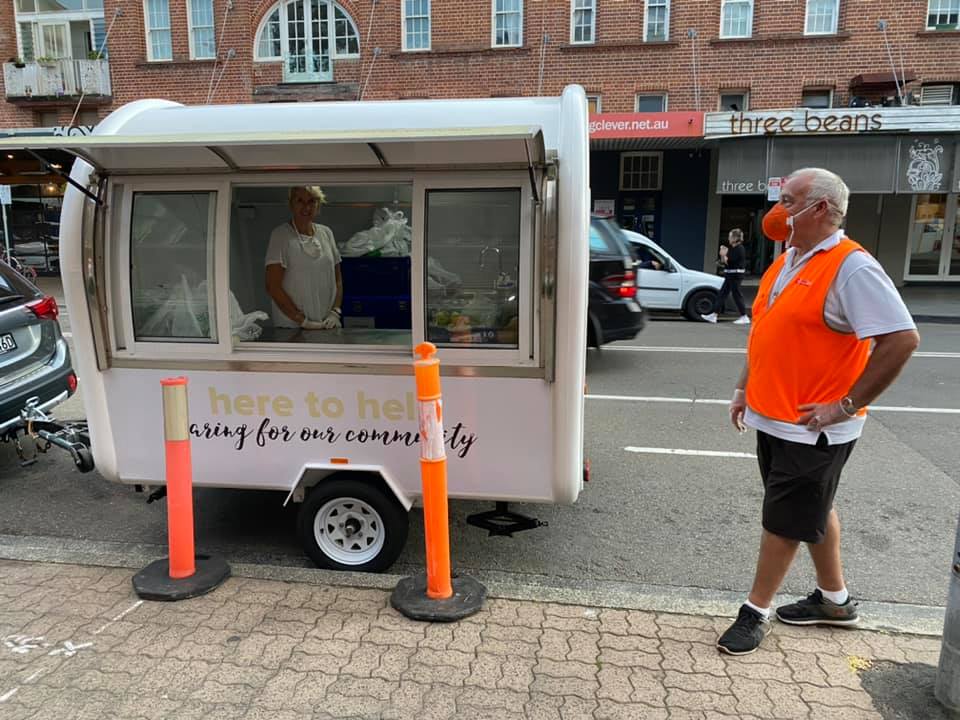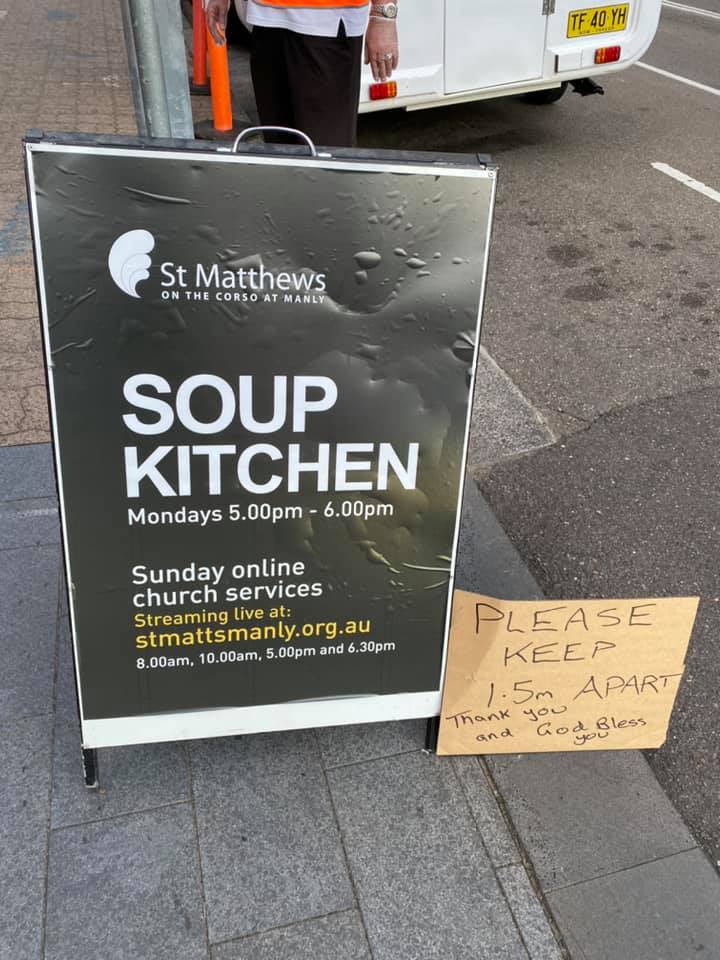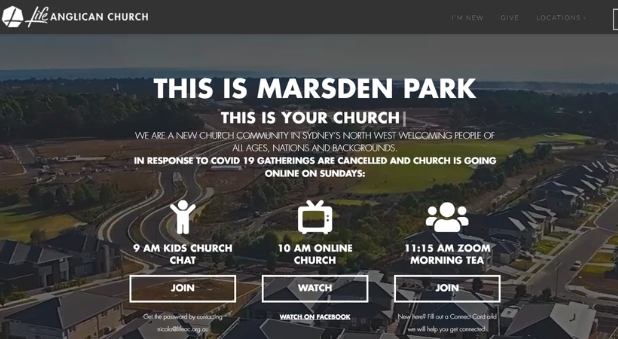On Palm Sunday, the Rev Mark Collins was preaching at a Life Anglican Church service – taking in the churches at Quakers Hill, Riverstone and his own church of Marsden Park.
He said to those viewing online that he would bring a Bible to their home if they wanted one. To his great joy, two people made contact: one a new Christian, and the other a person who had been willing to try church out in cyberspace. To his even greater joy, both have signed up for an upcoming Christianity Explored course that the parish will do online.
The non-believer lives a short walk from the church at Quakers Hill, but he had never been willing to walk in the door. Now, not only is he regularly watching church online, he is reading his new Bible with enthusiasm.
“It’s a strange world that we’re in now,” Mr Collins says, “but in the midst of all that is happening, God is sovereign and his kingdom is growing no matter what.”
"God is sovereign"
At a big church like St Matt’s, Manly, keeping tabs on everybody – never mind newcomers – can be hard. But online numbers suggest the parish is getting even bigger thanks to COVID-19.
Senior assistant minister and head of St Matt’s pastoral care team, the Rev Andrew Graham, says, “We estimate our numbers logging in online are up about 50 per cent… A conservative estimate for Easter Sunday was that we had more than 50 per cent extra people hooking in online than had turned up to services the previous year”.
So, how do we, as a church and as individuals within it, make contact with all these new people and love them well?
The answer will be different for each parish, as we seek to respond in a way that is most helpful to those around us – rich or poor, young or old, employed, unemployed or retired. Some parishes are offering a button to click on at their online service if you want prayer, contact or other support; others are keeping spare groceries aside for when a phone call comes, or offering one-to-one Bible reading. Or sometimes we can just be a good neighbour, workmate or friend of a friend and can help with what they need.
The new rector of Glenmore Park with Mulgoa, the Rev Chris Braga, is aware that for newcomers, a Zoom experience at church isn’t filled with the delight of seeing familiar faces, because the relationships aren’t there yet.
He says the parish plans to offer a group for those tuning in who aren’t already members so that, after the service, “if you want to get online and if you’re new, I’m going to be in a welcome lounge”.

“We still need to reach out,” he says, adding that members are already sharing the online services with people who don’t normally go to church, so an increasing number “are engaging with teaching from the Bible”.
"We need to reach out"
“[Normally] we have our doors open and we invite people to our church, and we need to maintain something of that same structure… to get out there and love other people, and we’ll see the benefit of that when our churches do gather together again.”
Ministry is still based on relationships, despite Covid-19 changing the nature of those relationships
Mr Collins says people still need meaningful contact that is relationally based, whether they’re already members of the church, on the fringes or experiencing it for the first time.
“Some people want a phone call,” he says. “Others in the younger generation just want a Facebook Messenger chat or whatever… some sort of conversation mechanism. Ministry’s still relationships, it’s just that [COVID-19] has changed how we do relationships.”
Back at Manly, Andrew Graham says each congregation has its own discrete personality, and this helps with care and follow-up. In addition, he leads a Bible study group for newcomers – and one Christian couple that joined for the first time a few weeks ago has simply met others online.

Because of physical distancing, the parish has also taken its weekly soup kitchen for community housing residents and homeless people onto the street in a borrowed van, and this has actually made the ministry more visible to the community.
“The goodwill towards this sort of thing is immense,” Mr Graham says. “People walking past are saying, ‘It’s great the church is doing this’ and giving us little donations. And a local butcher has even said, ‘Every night you need meat I’m happy to give it to you’. It’s wonderful.”

How to care for people you haven’t met
- Remembering that God is our strength (Psalm 46), make sure the shepherds in your parish are feeding the flock with God’s word and building resilience. This not only keeps the family of God strong but gives church members the impetus to help others. (Amid all this, keep an eye on your church staff to make sure they are also well supported)
- Provide a number of contact options for new people. Highlight an online welcome group, an email address or other options in your church service or label contact links clearly on your website.
- If you haven’t already done so, consider making the church services publicly available any time, on any day, so the greatest number of people can connect.
- Whether supported by a care agency/local council or run solely by the parish, consider making a care ministry more public so the community knows where to go for support, and so God is glorified through our love for our neighbours.
- Think in terms of relationship: whether you make contact by phone, social media, video link or a note in the letterbox, do whatever works best for that person based on their age and stage.
- When talking to someone new listen well, seek to develop a relationship and ask them if they need prayer.
- Ask if they need someone to shop for them.
- Keep a pantry of emergency groceries at your church for contacts you make who may need them.
- Offer to drop a Bible or New Testament at their home and provide them with the option of reading it with someone.
- Remember that you don’t have to solve every problem they may be facing. You can bring issues back to the wider church community.
















